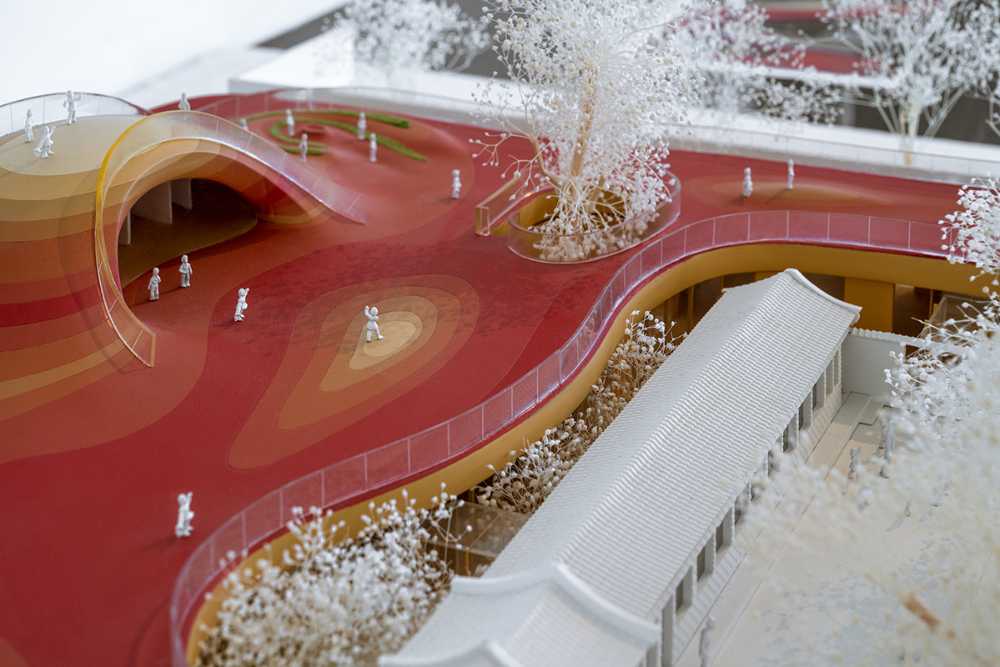While preserving the cultural heritage of the site, the new construction forms a multi-layered urban narrative in which the old and the new coexist. MAD envisages the roof of the "Courtyard Kindergarten" as a place full of magic, a joyful escape for children that is a symbol of freedom and endless imagination

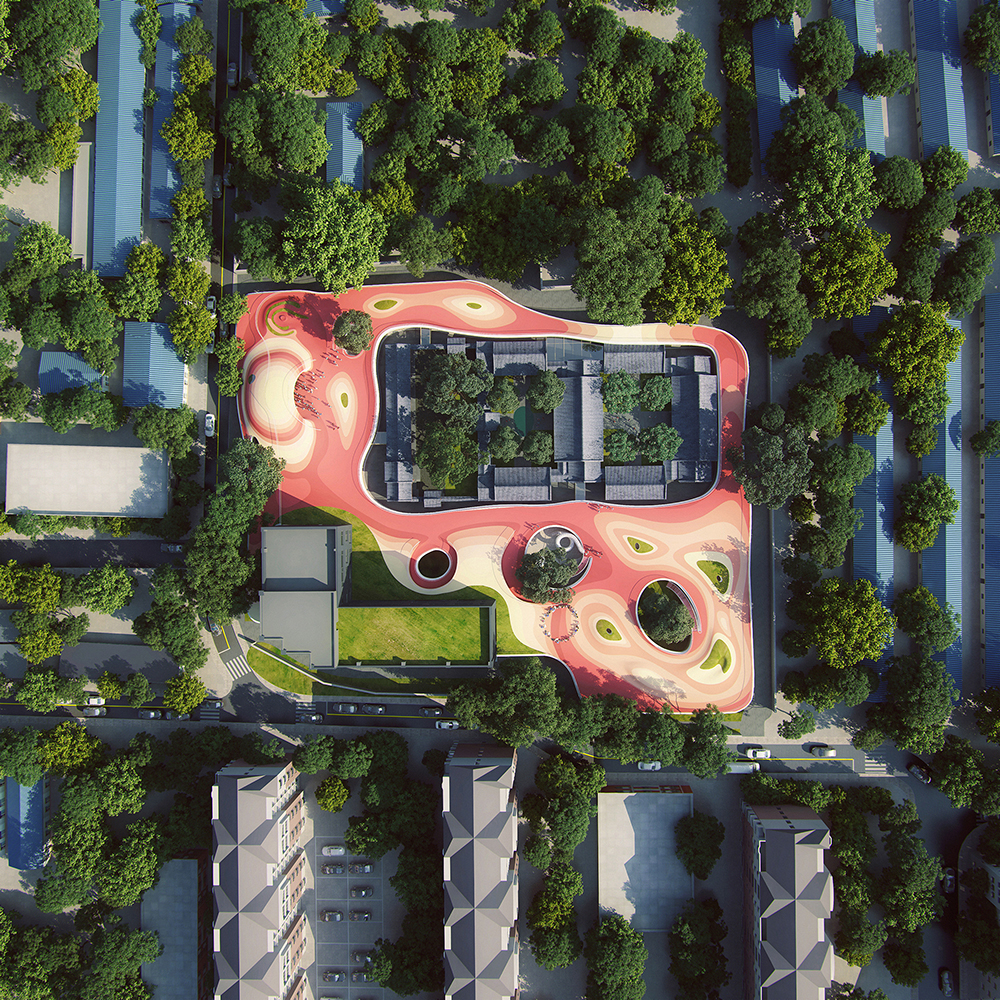
In Beijing, a traditional courtyard has been transformed into a kindergarten. Urban fantasy between the old and new
MAD Architects have designed a "Courtyard Kindergarten" in Beijing, a kindergarten and playground both located on the site of a traditional Siheyuan courtyard dating back to 1725. The design is characterized by a "floating dynamic" roof that surrounds the historic courtyard
- #Chine
- #Asie
- #École maternelle
- #Couleur
- #Verre
- #Nouvelle construction
- #Architectures
- #Architecture
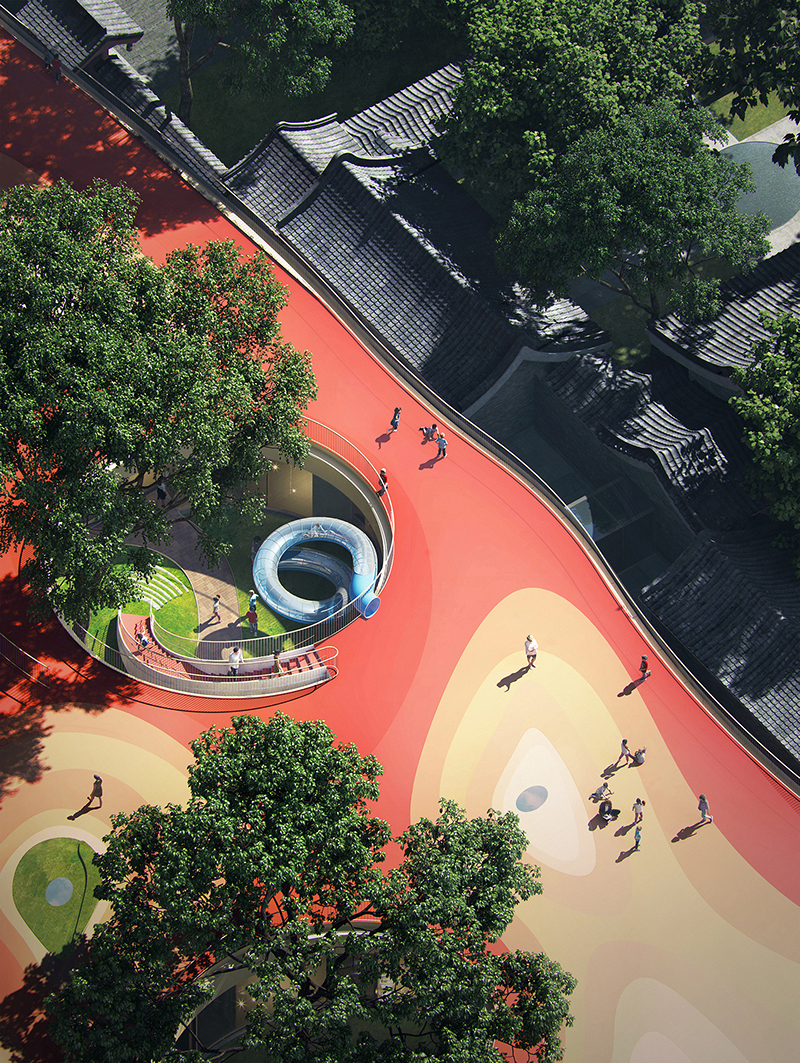
Opening up to the site, the roof transforms the space between the various buildings into a colourful playground that serves as the primary area for children, encouraging them to practice sports and outdoor activities. On the south-west side of the roof, a wavy surface of several small "hills" and "plains" creates a lively terrain, forming a playful landscape
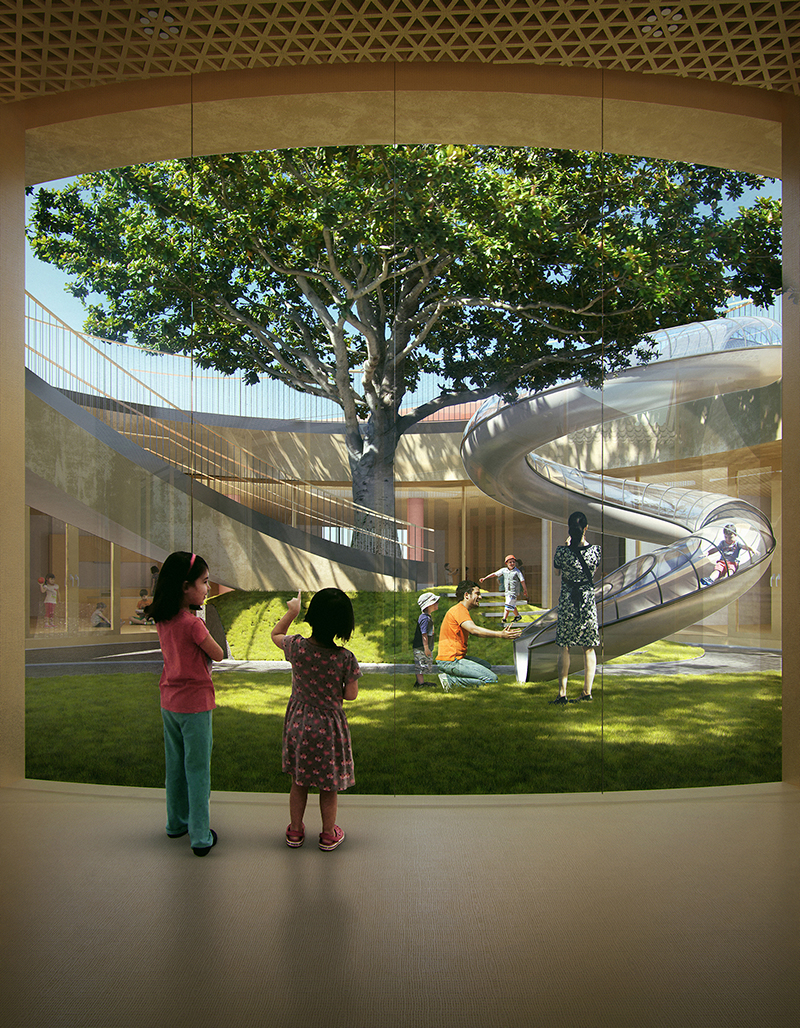
Under the floating roof, MAD designed the interior of the kindergarten to be an open concept layout that serves as an educational space, library, small theatre and gym. Located adjacent to the old courtyard, the new educational space opens up towards the historic buildings, giving the children an alternation of visions between the old and new, deepening their understanding of time and dimension
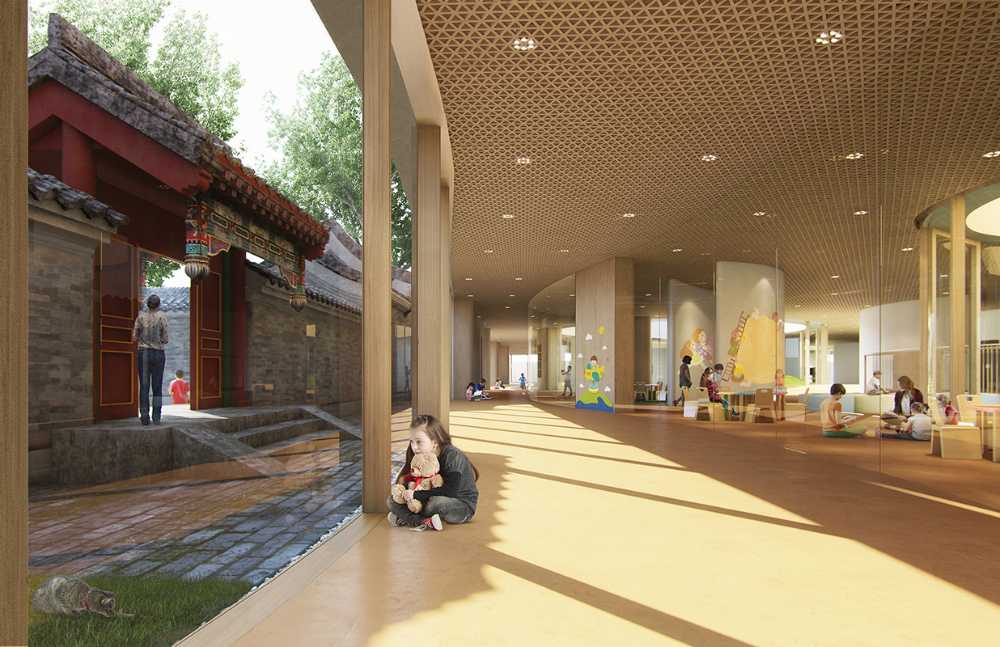
In turn, the new building was built keeping in mind the three ancient trees that were on the site: the spaces envelop them both in a way that retains their presence but also reflects the space of the existing courtyard, pushing the exterior in and flooding the interior with natural sunlight
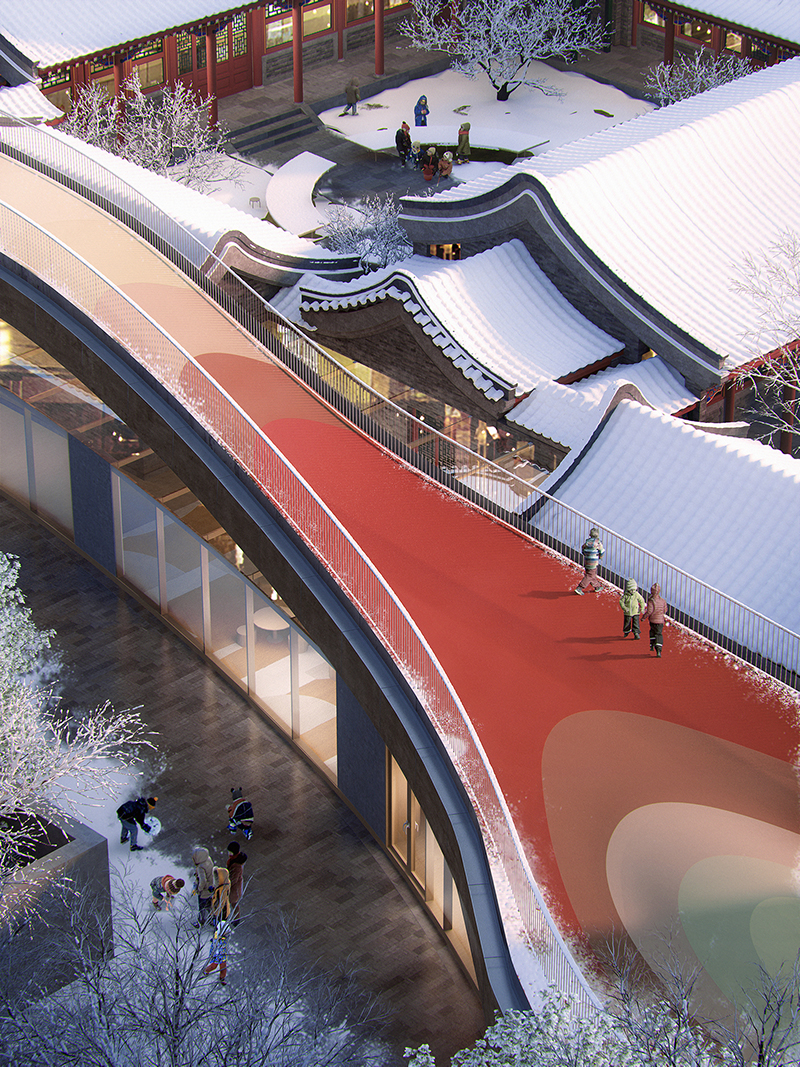
In its entirety, the "Courtyard Kindergarten" reveals several architectural elements, a modern building of the 90s and a traditional courtyard dating back 400 years, which initially seemed to be contradictory. The project preserves the authenticity of the original buildings, allowing them to coexist while creating a new type of interaction
